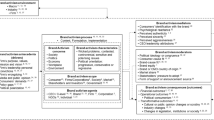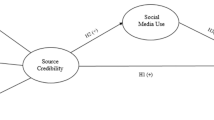Abstract
From farmers’ markets to primetime television cooking shows, notions of ‘knowing where our food comes from’ and ‘reconnecting’ with the sources of our food are now central to a range of contemporary cultural movements and popular media texts. While these ideas have primarily been mobilized by those with activist commitments to ethical and sustainable food production, they are also increasingly appearing in the media and marketing strategies of large agribusiness and retailing corporations, including those of the major Australian supermarkets. This paper explores some of the techniques currently used by major supermarkets to respond to criticisms about their food ethics, market control and relationship with producers. Using a case study of Australian supermarket Coles and its integration of its ‘Helping Australia Grow’ campaign into reality television cooking show, My Kitchen Rules, it will consider the textual practices of, and social media response to, Coles’ sponsorship and integrated advertising strategies of putting a ‘face’ to the farmers who produce the products found on supermarket shelves. By emphasizing to Coles customers that they, too, can ‘know where their food comes from’ and that their purchasing decisions support individual farmers and family farms rather than large conglomerates, these strategies help to locate Coles within a network of meanings that seek to both shift and contest negative perceptions of the supermarket chain’s corporate practices and food politics in ways that potentially complicate the activist discourses from which they draw.
Similar content being viewed by others
Notes
Information about the production contexts of reality television cooking shows is drawn from a larger Australian Research Council funded project, ‘The New Politics of Food and the Australian Media’ (DE140101412). This project includes qualitative research interviews with food television contestants and production staff. All interviews were conducted in accordance with the conditions offered by the Human Research Ethics Committee (Tasmania).
‘Top’ tweets are those that have been identified by Twitter as garnering the greatest user engagement via replies and retweets.
While, following Bruns and Burgess (2012), this paper acknowledges that a hashtag-based study of tweets is inevitably limited because it cannot capture potentially relevant tweets that do not explicitly use the selected hashtag(s), such an approach nonetheless provides a means of accessing the activity of engaged Twitter users who specifically seek to locate their tweets within particular conversations and communities.
Abbreviations
- ACCC:
-
Australian Competition and Consumer Commission
- MKR :
-
My Kitchen Rules (television show)
References
Arsena, A., D.H. Silvera, and M. Pandelaere. 2014. Brand trait transference: When celebrity endorsers acquire brand personality traits. Journal of Business Research 67: 1537–1543.
Blythman, J. 2002. Strange fruit. The Guardian 7 September. http://www.theguardian.com/lifeandstyle/2002/sep/07/foodanddrink.shopping. Accessed 17 Oct 2014.
Broderick, T. 2014. #MKR: A 101 to producing must-tweet TV. Australia blog. https://blog.twitter.com/2014/mkr-a-101-to-producing-must-tweet-tv. Accessed 17 Oct 2014.
Bruns, A., and J. Burgess. 2012. Researching news discussion on Twitter: New methodologies. Journalism Studies 13(5–6): 801–814.
Byrne, A., and M. Whitehead. 2003. The naked truth of celebrity endorsement. British Food Journal 105(4–5): 288–296.
Daily Telegraph, The. 2012. Magic of MasterChef. The Daily Telegraph 30 June: 11.
de Solier, I. 2005. TV dinners: Culinary television, education and distinction. Continuum: Journal of Media and Cultural Studies 19(4): 465–481.
Fielke, S.J., and D.K. Bardsley. 2013. South Australian farmers’ markets: Tools for enhancing the multifunctionality of Australian agriculture. GeoJournal 78: 759–776.
Goodman, D. 2003. The ‘quality turn’ and alternative food practices: Reflections and agenda. Journal of Rural Studies 19: 1–7.
Guthrie, J., A. Guthrie, R. Lawson, and A. Cameron. 2006. Farmers’ markets: The small business counter-revolution in food production and retailing. British Food Journal 108(7): 560–573.
Hanson, R. 2014. Carrots turned into fertiliser because they are too big to sell. The Mercury 7 August. http://www.themercury.com.au/lifestyle/carrots-turned-into-fertiliser-because-they-are-too-big-to-sell/story-fnj64o9j-1227015921738. Accessed 17 Oct 2014.
Hanson, R., and M. Johnson. 2012. Tassie farmers fear fleecing in lamb war. The Mercury 24 August: 13.
Henderson, J., J. Coveney, P.R. Ward, and A.W. Taylor. 2011. Farmers are the most trusted part of the Australian food chain: Results from a national survey of consumers. Australian and New Zealand Journal of Public Health 35(4): 319–324.
Hill, A. 2005. Reality TV: Audiences and popular factual television. London: Routledge.
Hinrichs, C.C. 2003. The practice and politics of food system localization. Journal of Rural Studies 19: 33–45.
Houghton, D. 2010. Lee cattle empire near Roma under threat from coal seam gas project. The Courier Mail 29 May. http://www.couriermail.com.au/news/lee-cattle-empire-near-roma-under-threat-from-coal-seam-gas-project/story-e6frereo-1225872688646. Accessed 17 Oct 2014.
Jackson, P., P. Russell, and N. Ward. 2007. The appropriation of ‘alternative’ discourses by ‘mainstream’ food retailers. In Alternative food geographies: Representation and practice, ed. D. Maye, L. Holloway, and M. Kneafsey, 309–330. Amsterdam: Elsevier.
Jenkins, H. 2006. Convergence culture: Where old and new media collide. New York: New York University Press.
Johnston, J., and S. Baumann. 2010. Foodies: Democracy and distinction in the gourmet foodscape. New York: Routledge.
Kenner, R. 2008. Food Inc. Magnolia Pictures, Participant Media and River Road Entertainment.
Knox, M. 2014. Supermarket monsters: Coles, woolworths and the price we pay for their domination. The Monthly August. http://www.themonthly.com.au/issue/2014/august/1406815200/malcolm-knox/supermarket-monsters. Accessed 17 Oct 2014.
La Frenz, C. 2014. The supermarket duopoly is starting to fray. The Australian Financial Review 15 November. http://www.afr.com/personal-finance/shares/the-supermarket-duopoly-is-starting-to-fray-20141115-11n8m4. Accessed 13 April 2015.
Lester, L., and B. Hutchins. 2011. Soft journalism, politics and environmental risk: An Australian story. Journalism 13(5): 654–667.
Lewis, T., and A. Huber. 2015. A revolution in an eggcup? Supermarket wars, celebrity chefs, and ethical consumption’. Food, Culture & Society 18(2): 289–308.
Madger, T. 2009. Television 2.0: The business of American television in transition. In Reality TV: Making television culture, ed. S. Murray, and L. Ouellette, 141–164. New York: New York University Press.
Manning, P. 2012. Famous foodie lashes supermarket stranglehold. The Age 29 October: 3.
McIntyre, P. 2012. Big supermarkets on the nose. The Australian Financial Review 30 April: 45.
Mediaweek. 2014. Evan Wilkes and Emma Ashton: Reality TV. Mediaweek: Weekly podcasts about the Australian media industry. http://www.mediaweekpodcasts.com/evan-wilkes-emma-ashton-reality-tv/. Accessed 17 Oct 2014.
Miletic, D. 2010. MasterChef cooks up a sales storm. The Age 23 July: 3.
Mitchell, G., and S. Willoughby. 2013. Farmers left sour over ‘cutthroat’ milk war. The Sydney Morning Herald 18 February: 5.
Mitchell, J. 2014. Seven starts year with stellar ratings. The Australian Financial Review 31 January: 21.
Moore, O. 2006. Understanding postorganic fresh fruit and vegetable consumers at participatory farmers’ markets in Ireland: Reflexivity, trust and social movements. International Journal of Consumer Studies 30(5): 416–426.
Murphy, K. 2008. The ‘most dependable element of any country’s manhood’: Masculinity and rurality in the great war and its aftermath. History Australia 5(3): 72.1–72.20.
Neales, S. 2013. No bright golden haze on the meadow. The Australian 16 May: 6.
Nestle, M. 2002. Food politics: How the food industry influences nutrition and health. Berkeley: University of California.
Nosi, C., and L. Zanni. 2004. Moving from ‘typical products’ to ‘food-related services’: The Slow Food case as a new business paradigm. British Food Journal 10(11): 779–792.
Phillipov, M. 2013. In defense of textual analysis: Resisting methodological hegemony in media and cultural studies. Critical Studies in Media Communication 30(3): 209–223.
Pollan, M. 2006. The omnivore’s dilemma: A natural history of four meals. New York: Penguin.
Pollan, M. 2008. The defence of food. London: Penguin.
Popjie, B. 2014. Pitying the fools on My Kitchen Rules. The Sydney Morning Herald 1 April. http://www.smh.com.au/entertainment/tv-and-radio/pitying-the-fools-on-my-kitchen-rules-20140331-35ti8.html. Accessed 17 Oct 2014.
Reality Raver. 2011a. Reality TV insights survey—Product placement in reality TV shows works. Reality ravings: Australia’s leading reality TV blog. http://www.realityravings.com/2011/08/22/reality-tv-insights-survey-product-placement-in-reality-tv-shows-works/. Accessed 17 Oct 2014.
Reality Raver. 2011b. Reality rules—‘Social sofa’ is driving reality TV engagement. Reality ravings: Australia’s leading reality TV blog. http://www.realityravings.com/2011/11/23/reality-rules-social-sofa-is-driving-reality-tv-engagement/. Accessed 17 Oct 2014.
Richards, C., G. Lawrence, and D. Burch. 2011. Supermarkets and agro-industrial foods: The strategic manufacturing of consumer trust. Food, Culture & Society 14(1): 29–47.
Schlosser, E. 2002. Fast food nation: What the all-American meal is doing to the world. London: Penguin.
Searle, K. 2012. MasterChef’s amateur makeovers. Media International Australia 143: 28–35.
Spurgeon, C. 2013. Regulating integrated advertising. In The Routledge companion to advertising and promotional culture, ed. M.P. McAllister, and E. West, 71–82. New York: Routledge.
Todd, A.M. 2009. Happy cows and passionate beefscapes: Nature as landscape and lifestyle in food advertisements. In Critical pedagogies of consumption: Living and learning in the shadow of the ‘shopocalypse’, ed. J.A. Sandlin, and P. McLaren, 169–179. New York: Routledge.
Turner, G. 1990. British cultural studies: An introduction. Boston: Unwin Hyman.
Whyte, S. 2013. Fresh is what they say it is. The Sydney Morning Herald 6 July: 2.
Zepeda, L., and D. Deal. 2009. Organic and local food consumer behaviour: Alphabet theory. International Journal of Consumer Studies 33: 697–705.
Acknowledgments
This research was supported by an Australian Research Council Discovery Early Career Research Award (DE140101412).
Author information
Authors and Affiliations
Corresponding author
Rights and permissions
About this article
Cite this article
Phillipov, M. ‘Helping Australia Grow’: supermarkets, television cooking shows, and the strategic manufacture of consumer trust. Agric Hum Values 33, 587–596 (2016). https://doi.org/10.1007/s10460-015-9643-6
Accepted:
Published:
Issue Date:
DOI: https://doi.org/10.1007/s10460-015-9643-6




